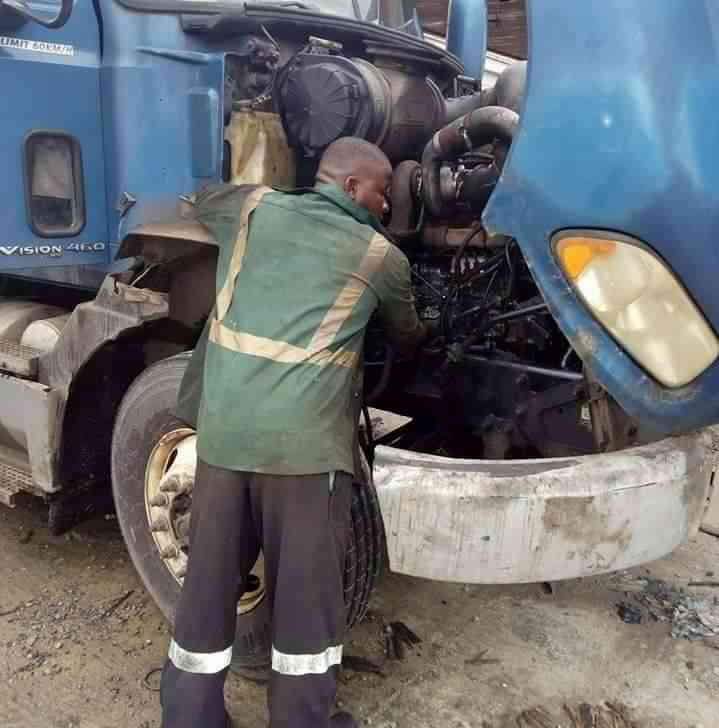Introduction to Compressed Natural Gas (CNG) Training in Ekiti State
The National Automotive Design and Development Council (NADDC) has initiated a significant training program aimed at equipping technicians with the necessary skills to support the introduction of compressed natural gas (CNG) as an alternative fuel for vehicles. This initiative is part of broader efforts to reduce transportation costs and promote sustainable livelihoods through technical upskilling.
The Training Program and Its Objectives
During the opening of a five-day specialized mechatronics training session in Ado Ekiti, the Director General of NADDC, Joseph Osanipin, highlighted the importance of this program. The training focuses on CNG and petrol-powered tricycles and motorcycles, targeting individuals who rely on these modes of transport for their livelihoods.
Osanipin emphasized that the training aims to expand the scope of participants’ means of earning a living and boost their economic opportunities. He also mentioned that each beneficiary in Ekiti State has agreed to train four others, ensuring that the knowledge gained is disseminated widely.
Infrastructure Development for CNG Availability
One of the key components of the initiative is the development of infrastructure to support the distribution of CNG. Osanipin stated that two filling stations are currently under construction and are nearing completion. Once operational, these facilities will enable the dispensing and sale of CNG at competitive prices, significantly reducing the cost of transportation.
He noted that the availability of CNG in Ekiti State is a crucial step toward making transportation more affordable for residents. “We are working on the challenges, especially the non-availability of gas in Ekiti. The infrastructure has to be provided, that is the facility for the storage and dispensing,” he explained.
Collaboration Between Stakeholders
The training program was organized by NADDC in collaboration with Simbat Group Nigeria and the Ekiti State Government. This partnership highlights the shared commitment to promoting sustainable energy solutions and enhancing technical expertise among local communities.
Ekiti State Commissioner for Wealth Creation, Chief Kayode Fasae, praised the initiative and encouraged the beneficiaries to make the most of the training. He emphasized the importance of the skills acquired in contributing to the state’s economy and communities.
Fasae also reiterated the government’s commitment to initiatives that foster prosperity and development. “This event signifies yet another milestone in the series of up-skilling initiatives and reflects our shared commitment to developing capacity for job creation and wealth generation,” he said.
Expanding the Initiative Nationally
Osanipin outlined plans to extend the training program beyond Ekiti State. He mentioned that the initiative would soon move to Kano, Kaduna, Owerri, Enugu, and Benin, covering the entire country. This nationwide approach aims to ensure that more technicians are equipped with the knowledge and skills needed to support the adoption of CNG.
Role of Simbat Nigeria
The Regional Manager of Simbat Nigeria, Mr. Sumit Panda, highlighted the organization’s plans to conduct similar training programs across the country. These efforts are intended to enhance the capacity of technicians and improve the user experience for those who rely on motorcycles and tricycles for transportation.
Impact on Tricycle Owners and Riders
Mr. Akin Akinola, the Ekiti State Chairman of the Tricycle Owners and Riders Association of Nigeria, expressed confidence in the positive impact of the training. He noted that the availability of CNG in the state would have a multiplier effect on members, leading to reduced transportation costs and improved economic conditions.
Conclusion
The introduction of CNG in Ekiti State marks a significant step towards sustainable and affordable transportation. Through collaborative efforts and comprehensive training programs, the NADDC and its partners are laying the foundation for a more efficient and environmentally friendly transport system. As the infrastructure develops and more technicians are trained, the benefits of CNG are expected to reach a wider audience, contributing to economic growth and improved quality of life.







